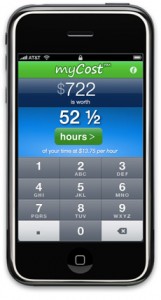Pay Cuts of Pay Checks?

Author, Speaker, Inventor and Consultant, Max Jaffe, CPA, helps individuals keep more of the money they make
Editor’s note: Max Jaffe is a regular contributor to this blog
Many in this economy who have not lost their corporate job have suffered reduced income. Most employees would agree to take a cut in pay than have layoffs, as that cut might just be them. This thinking stretches across the entire rank and file spectrum, from management all the way to assembly line workers, including union members.
Not just large and small companies are reducing pay for their employees. Revenue for state and local governments has been drying up, as foreclosures mean property taxes aren’t being generated from those homes. Spending has been curtailed by many individuals who have jobs and fear losing them, to say little of a depleted spending pattern for those who have indeed lost their jobs, all of which mean less sales tax revenue. To make up the difference, teachers, police officers and firefighters have had their wages cut or have had to take unpaid furloughs.
The cut in pay doesn’t necessarily have to be a decrease in income. It could take the form of decreased benefits; specifically, it could be an increase in the employee’s share of health insurance, which may as well be a decrease in pay, as net pay is smaller as a result.
As if that weren’t enough, in order to remain competitive in a global economy, most employers have reduced, if not eliminated entirely, their contribution to employees’ 401(k) accounts. Old fashioned pension plans, where a retiree receives a monthly stipend (called a defined benefit) is a thing of the past, as only about 16% of American workers are still entitled to a defined benefit pension plan. Translation: saving for retirement is now totally in the hands of the employee. You really think Social Security is going to take care of you? Think again!
With this tidal wave hitting every day Americans, there’s all the more reason to cut back on spending. The ONLY way to accomplish this is to track your spending as you are spending, in real time. This does NOT mean getting a report at the end of the month to see what you’ve done. The key word here is done; you cannot go back and change it; it’s not unlike looking in the rear-view mirror. You need to start looking through the windshield, so you can see where you are going. That way you can make adjustments to your spending as you are spending, thereby allowing you to reach your goal. So, you spent too much on groceries, and you find that out at the end of the month, what are you going to do next month? Not eat? I don’t think so.
Most people say, “Okay, that’s great, but how do I start a budget?” Good question. The best way is to write down everything you spend for two to three weeks; yes, I mean EVERYTHING. That way you’ll know where your money goes. That will form the basis for your budget. You’ll see the error of your ways once it’s on paper. You’ll see certain extravagances that you can easily live without, but you won’t know those things unless you write it down. Throwing down the credit card at every purchase will not alert you to what you’re spending. You think you’re going to examine that credit card statement when it comes? Think again! Even if you did, remember, it is in the past. It is done. You can’t change it.
If you find yourself in this pay cut squeeze, you might want to try your hand at a budget because you really need to make that paycheck stretch.
Read more about Max’s Financial Fuel GaugeR
